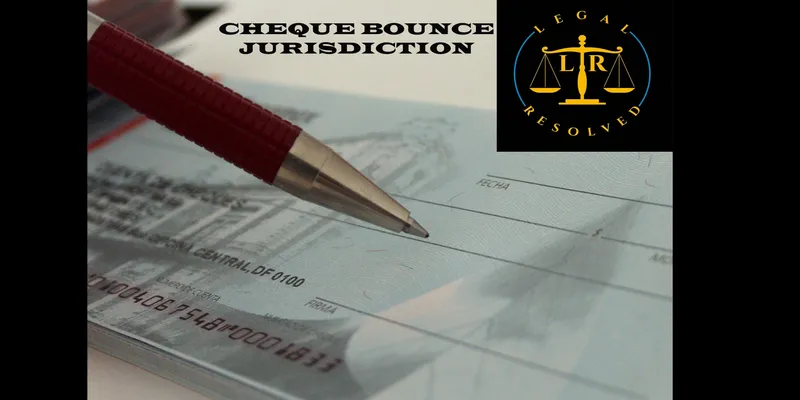

Cheque bounce: jurisdiction - legal resolved
“Jurisdiction" or where an instance of cheque bounce is to be battled and chosen, increases colossal centrality in question including parties situated in various urban communities.
In such multi-city exchanges there are two banks included
To begin with, where the check is drawn and
Second, where the individual paying holds a record.
Consider the accompanying delineation: A, living in Mumbai exhibits a cheque to B, living in Kolkata. B, on saving the cheque in his bank in Kolkata understands that the cheque has ricocheted.
As indicated by the recent position of law, the only remedy B had was to go to Mumbai to document a suit against A. This was exceptionally awkward for casualties who got various cheques drawn from accounts with lacking assets situated in various urban communities. A current alteration presented under Section 142(2) of the Negotiable Instruments Act, 1881 accommodates the accompanying cures:
A cheque bounce case would now be able to just be recorded in the court where the payee's record is found. Along these lines, in the delineation specified over, the case will be documented by B in Kolkata. This purposes the issue of a distressed payee, situated in one city and battling a case in another city.
Once a case has been documented under the steady gaze of a specific Court in the payee's purview, all comparative cheque bounce bodies of evidence against a similar drawer must be recorded in a similar court. Cheque bouncing is a criminal offense in India under Section 138 of the Negotiable Instrument Act, 1881 (likewise, the NIA). The results of such a case could be detainment up to 2 years or discount of double the measure of the cheque so issued or both.
The offense of disrespect of cheque is a bailable offense (safeguard involves right). It is additionally a compoundable offense and consequently, the individual grumbling can go into a legitimate trade off and can consent to drop charges against the payer.
The offense of cheque bounce under the NIA is additionally a non-cognizable offense, which basically implies that the police can't capture the defaulter, whose cheque bounces, without a warrant.
Keeping in mind the end goal to be judicious, the defaulter is encouraged to return to the Demand Notice sent to them if there should arise an occurrence of a cheque bounce inside the recommended 15 days’ time. A reaction to the Legal Notice inside the endorsed time may enable the defaulter to abstain from getting a criminal allegation against him.
The Legal notice sent to the defaulter is the last cautioning given to genially settle the issue under the watchful eye of the court is drawn nearer and a case is documented. Once the case is recorded, it transforms into a criminal issue and the case is to be battled until settled.
Section 138of the Negotiable Instruments Act, 1881 applies when the cheque bounces because of lacking assets, signature crisscross, stop installment, account shut, or untrustworthy goal and not for some other reason(s).







